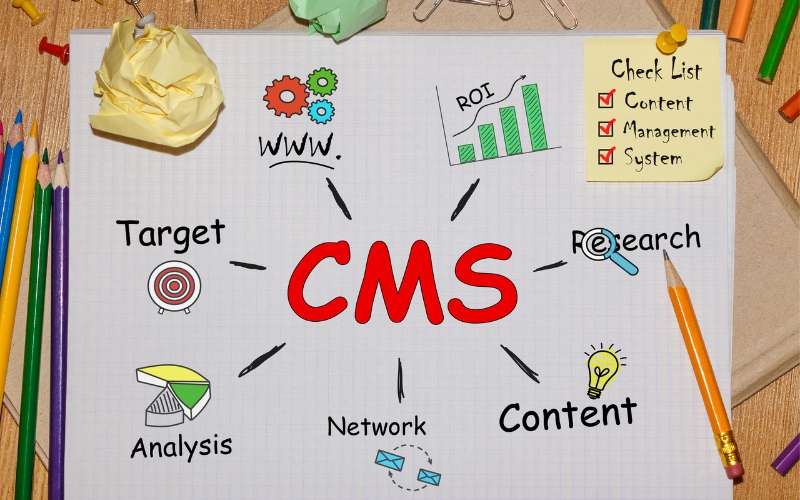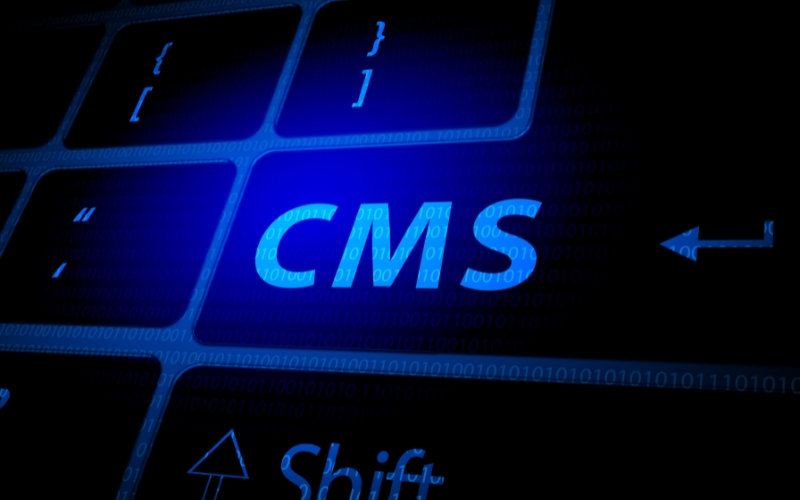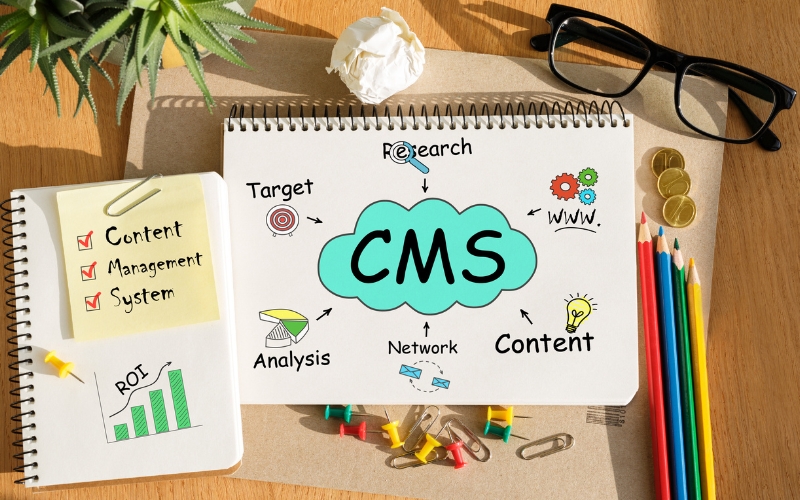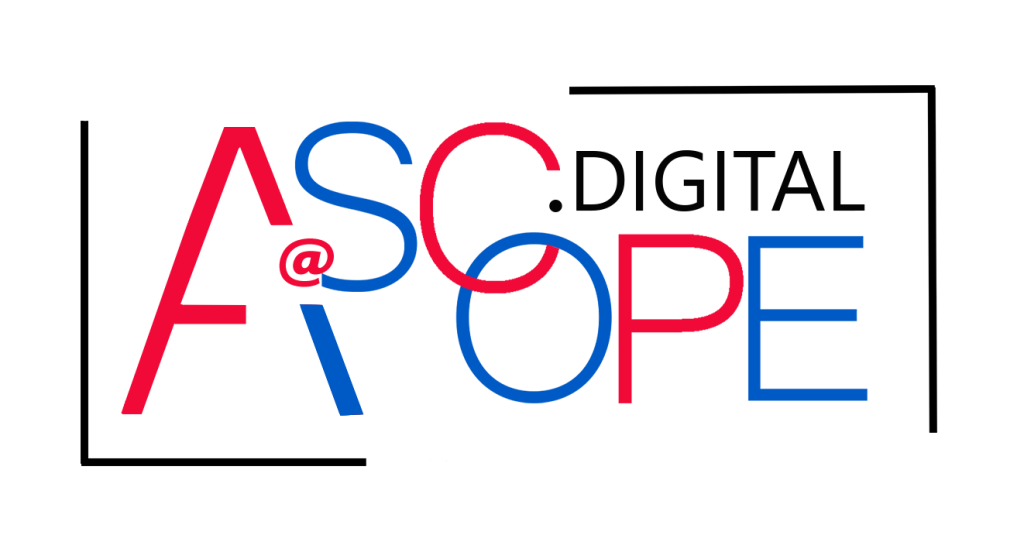
Choosing the best CMS for business is a crucial decision that directly impacts the functionality and efficiency of your website. A Content Management System (CMS) is not just a tool for managing content—it’s the backbone of your online presence. The right CMS can streamline operations, enhance user experience, and support your business’s growth. This article explores the pivotal role of a CMS in maintaining and optimizing your website, from ease of use and scalability to security and support.
Understanding the Role of a CMS in Your Business Website

A Content Management System (CMS) is an essential tool for managing and maintaining the content of your website. It allows businesses to create, edit, organize, and publish digital content without needing extensive technical skills. Whether you’re running a blog, an e-commerce platform, or a corporate site, a CMS simplifies the website management process, making it an invaluable asset for businesses of all sizes. Choosing the best CMS for business can be a pivotal decision that influences various aspects of your website, from usability to functionality.
The primary role of a CMS is to streamline content management. It provides an intuitive interface where you can update text, images, and multimedia, keeping your website fresh and engaging for visitors. This means that even without a deep technical background, you can still maintain and update your business website regularly. A user-friendly CMS enables business owners, marketers, and content creators to take control of their website’s content, saving time and reducing the need for ongoing technical support.
However, the best CMS for business goes beyond basic content editing. It directly impacts your website’s performance, scalability, and user experience. A powerful CMS will ensure your website runs smoothly by offering fast loading speeds, mobile responsiveness, and security features that keep your site safe from cyber threats. These elements are crucial for retaining visitors and improving your site’s ranking on search engines.
When it comes to scalability, selecting the best CMS for business allows you to grow your website as your business expands. Whether you’re adding new pages, integrating with third-party software, or expanding your product catalog, the CMS should be flexible enough to accommodate your evolving needs. A solid CMS provides the foundation for growing your online presence without requiring an entire website overhaul.
Moreover, the ease of use is a significant factor in the selection process. The best CMS for business should have an intuitive interface that doesn’t overwhelm users. A simple, clean design with drag-and-drop features or built-in templates can help streamline the website management process, allowing you to focus more on growing your business rather than technical complexities.
Key Features to Look for in a Business CMS

When selecting the best CMS for business, it’s essential to focus on the features that will not only simplify your content management process but also align with your business goals. A well-chosen CMS will provide a solid foundation for your website, enhancing its functionality and supporting its long-term growth. Below are the key features you should look for when evaluating a CMS for your business website.
Content Creation and Management Tools
The core functionality of any CMS lies in its content creation and management tools. The best CMS for business will offer an intuitive and efficient content editor that allows you to create and manage content without needing coding knowledge. Look for a CMS that supports rich text editing, multimedia integration, and an easy-to-use interface that enables you to create pages, blog posts, and product descriptions seamlessly. Additionally, organizing content should be simple, with robust categorization features like tagging, categorization, and archiving to help you manage large volumes of content effectively.
SEO Features, Integrations, and Customization Options
SEO is critical for improving the visibility of your business website on search engines, and the best CMS for business should have built-in SEO features or easy integrations with SEO plugins. These features include customizable meta titles, descriptions, image alt tags, and URL structure settings. The ability to optimize your content for search engines without technical expertise is a major advantage for businesses looking to drive organic traffic.
Additionally, your CMS should offer customization options that allow you to tailor the website’s design and functionality to your specific needs. Whether it’s changing the website’s theme, adding custom functionalities, or integrating with third-party tools, flexibility is essential for growing your business online.
User-Friendliness and Flexibility for Non-Technical Users
A business CMS should be user-friendly, especially if you do not have a dedicated technical team to manage your website. The best CMS for business will have a clear, intuitive interface that allows even non-technical users to manage content efficiently. Features such as drag-and-drop page builders, pre-designed templates, and simple navigation help you easily update and maintain your website.
The flexibility of the CMS is another key factor. A good CMS should allow you to make design and functional changes without needing extensive development work. It should be adaptable to changes as your business grows, supporting new features and integrations as needed.
Evaluating Security and Support for Your CMS

When choosing the best CMS for business, security and support should be at the top of your priorities. The digital landscape is constantly evolving, and as businesses grow online, their websites become increasingly vulnerable to cyberattacks. A CMS with strong security features can safeguard your business’s sensitive data and protect both your company and your customers. Alongside security, reliable customer support and a supportive community are crucial elements in making sure you get the most out of your CMS, especially when challenges arise.
Importance of Security Features
The best CMS for business will offer robust security measures to protect your website from threats like hacking, data breaches, and malware attacks. This includes regular updates, security patches, and vulnerability assessments. A CMS that is frequently updated ensures that it remains secure against emerging security threats, keeping your business and customer data safe. Some CMS platforms even offer automatic updates for security patches, ensuring that your website stays protected without the need for constant monitoring.
In addition to updates, look for CMS platforms that have features like two-factor authentication (2FA), SSL support, and secure password management. These added security layers reduce the risk of unauthorized access to your website and provide peace of mind. For businesses with high traffic or sensitive information, ensuring that the best CMS for business has advanced security features is non-negotiable.
Regular Updates and Patches
One of the key factors in evaluating the best CMS for business is its ability to roll out updates and security patches regularly. A CMS that stays up to date is less likely to become a target for cybercriminals. Without timely updates, your website could become vulnerable to known exploits, potentially compromising your business’s reputation and security. Choose a CMS that has a proactive approach to security and maintains a clear record of past security patches and updates.
Robust Customer Support and Community
Another critical consideration when selecting the best CMS for business is the level of customer support provided. Issues can arise at any time, and when they do, having access to expert support is invaluable. Look for CMS platforms that offer various support channels, such as live chat, email, and phone support. Additionally, platforms with a strong online community or forums can be incredibly helpful, as you can find answers to common issues, troubleshooting advice, and best practices from fellow users and developers.
Budget Considerations: Open Source vs. Paid CMS Platforms

When selecting the best CMS for business, one of the most important factors to consider is the budget. The cost of your CMS can vary significantly based on whether you choose an open-source or a paid CMS platform. Each option has its advantages and disadvantages, and understanding these differences will help you make an informed decision that aligns with your business’s financial and operational goals.
Open Source CMS Platforms
Open-source CMS platforms, like WordPress, Joomla, and Drupal, are generally free to use, which makes them an attractive option for businesses looking to minimize initial costs. With an open-source CMS, you only need to pay for hosting, domain registration, and any premium themes or plugins you may want to use. This makes the best CMS for business for startups or small businesses with limited budgets. Additionally, open-source CMS platforms often have a large community of users and developers, which can be beneficial for troubleshooting and customization.
However, while the platform itself is free, you may encounter hidden costs. For instance, you may need to hire a developer to handle customization, security, or troubleshooting, especially if your business requires specific functionalities that aren’t available out of the box. Additionally, ongoing maintenance and updates to ensure security can add to the total cost over time. While the open-source option offers flexibility and control, it may require more time and resources to manage effectively.
Paid CMS Platforms
On the other hand, paid CMS platforms, such as Squarespace, Shopify, and Wix, often come with a higher initial cost, but they provide an all-in-one solution with more built-in features and support. The best CMS for business for those who prefer a hands-off approach, paid platforms generally include hosting, regular updates, and customer support as part of the package. This can save you time and effort on the back end, allowing you to focus on growing your business rather than managing a website’s technical aspects.
Paid CMS platforms typically offer a range of pricing tiers, depending on the features you need. For businesses that require e-commerce functionality, advanced SEO tools, or enhanced security, these platforms often provide a more streamlined and professional experience. However, it’s important to assess the total cost of ownership, including monthly or annual subscription fees, and ensure that the features align with your business requirements.
Choosing the Best CMS for Business Based on Budget
When evaluating the best CMS for business, you must weigh the benefits of each type against your business’s budget and long-term goals. Open-source platforms offer a low entry cost but may involve higher maintenance and customization expenses. Paid platforms, while more expensive upfront, provide convenience, security, and support, making them ideal for businesses that prefer an easier and more integrated solution. Balancing initial costs with long-term sustainability is key to choosing the right CMS for your business.
How to Scale and Grow with Your CMS

As your business grows, it’s crucial to have a CMS that can scale with you. The best CMS for business will not only help you manage your website effectively today but also accommodate future growth, product or service expansions, and the increased demands of a larger audience. Scalability is a key consideration when selecting a CMS, as it ensures that your website can evolve alongside your business without requiring a complete overhaul.
Scalability Features for Future Growth
When looking for the best CMS for business, ensure that it offers scalability features that can handle your growth over time. For instance, a scalable CMS will allow you to add more pages, products, or services without compromising performance. As your business expands, you might need to increase the number of product listings or introduce new categories, and the CMS should be able to support that. This could include flexible content management systems that let you easily structure and categorize your site’s content, as well as the ability to manage larger databases without affecting loading speeds or user experience.
Moreover, the best CMS for business should handle high traffic volumes efficiently. As your business gains more customers or viewers, your website’s traffic will likely increase. A CMS that offers robust caching options, efficient content delivery networks (CDNs), and server load balancing can help maintain high performance during traffic spikes, ensuring a seamless experience for your users. This scalability ensures that your website will be prepared for future growth without encountering performance bottlenecks.
Integrations with Business Tools and Easy Upgrades
Another important feature of the best CMS for business is the ability to integrate with other essential business tools. Whether it’s integrating with your customer relationship management (CRM) system, email marketing platforms, or e-commerce solutions, seamless integration ensures that your CMS supports all aspects of your business. As your needs evolve, having a CMS that can connect with external tools such as analytics software, social media platforms, and inventory management systems can streamline operations and enhance customer experiences.
In addition to integrations, the best CMS for business should allow for easy upgrades and customization. As your business evolves, your CMS needs may change. The ability to add new features, install plugins, or even upgrade to more advanced plans without disrupting your existing setup is essential for long-term growth. Look for a CMS that supports modular expansions and easy customization options, ensuring that your website can adapt to your growing business requirements.
Conclusion
When selecting the best CMS for business, it’s essential to stay informed about the latest trends and best practices in web development. For an in-depth guide on CMS features, flexibility, and comparison, check out this comprehensive resource from W3Techs, which offers valuable insights into the most popular CMS platforms and their usage trends across the globe. This can help you make an informed decision by comparing various platforms based on real-world data.
In conclusion, selecting the best CMS for business is an essential step in ensuring that your website is both functional and scalable. The right CMS provides the foundation for managing content efficiently, optimizing for search engines, and adapting to your business’s growth needs. By prioritizing features like security, ease of use, scalability, and integrations, you can ensure that your CMS supports both your current operations and future ambitions, helping your business thrive in the digital space.
For more details or to discuss your specific Website Development and Design, visit our Website Development and Design page.

